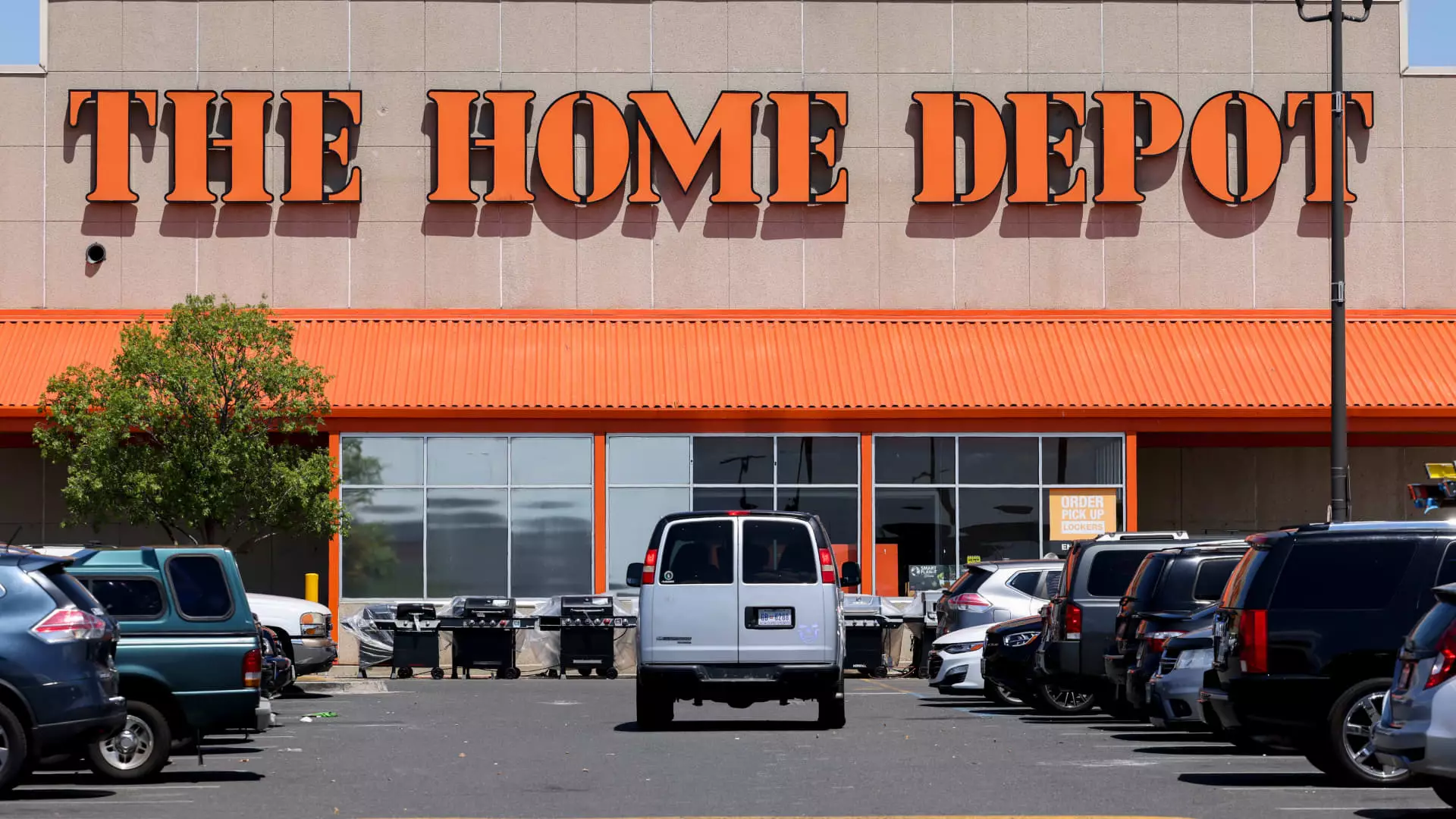In recent market activities, our investment team has initiated purchases of Home Depot shares, strategically positioning ourselves in response to fluctuations in housing trends and interest rates. Our initial acquisition of 50 shares was executed at an approximate price of $362, followed by an additional purchase of 50 shares at a slightly higher price later that week. Home Depot’s stock performance throughout the year has been varied; it has gained roughly 7% thus far, yet this falls short of the S&P 500’s more impressive 16% rise. The stock witnessed a peak in March, climbing to $395, buoyed by optimistic market expectations regarding forthcoming Federal Reserve rate cuts. However, it suffered a decline in May, dropping to $325 as investors recalibrated their projections.
In the past few months, there has been a resurgence in Home Depot’s stock performance, correlating with a downward trend in bond yields driven by a series of softer inflation indicators reported alongside resilient economic data. However, it remains essential to note that Home Depot’s current stock price significantly lags behind its late 2021 peak of $415, a time marked by extensive consumer spending in the home improvement sector during the COVID-19 pandemic lockdowns.
The prevailing economic backdrop features a Federal Reserve comfortably anticipated to initiate rate cuts in the coming months. This context has motivated us to invest in high-quality companies like Home Depot, which have been negatively impacted by elevated interest rates. As borrowing costs decline, sectors such as housing, which directly influences Home Depot’s sales, are poised for recovery. Historical analysis suggests that significant increases in housing turnover typically occur when mortgage rates fall within the 5% to 6.5% range. Recently, reports indicated a decline in mortgage rates to 6.29%, resulting in a marginal 1.4% uptick in total mortgage applications—a sign that the market might be starting to react positively.
Given this backdrop, housing activity has already shown incremental gains when mortgage rates dipped below the 6.5% threshold, as noted by Home Depot’s CEO, Ted Decker. These indicators, albeit not a massive surge, showcase an upward trend in mortgage demand and refinancing activities. Moreover, industry experts speculate that the possibility of mortgage rates dipping into the 5% range is not far-fetched, which could further catalyze the housing market and, by extension, Home Depot’s business recovery.
Contrary to general retail market pessimism, the housing sector offers distinctive characteristics that can stimulate home improvement sales. The rise in home equity values, which have seen an increase of nearly $18 trillion since 2019, provides a financial cushion for homeowners to invest in renovations and improvements. With a tappable equity value of around $11 trillion available for home equity lines of credit (HELOCs), the impetus for spending in this domain is stark, supporting our thesis that Home Depot will see an uptick in sales as housing momentum builds.
While fluctuations in comparable sales at Home Depot remain a challenge—with forecasts predicting a return to growth only in the latter half of next year—the need to capitalize on the inflection point is paramount. Comparisons can be drawn with other retail stocks now recovering following anticipated sales growth, suggesting that proactive investment in quality stocks is warranted.
When evaluating Home Depot versus its primary competitor, Lowe’s, it is important to underline Home Depot’s robust positioning in the professional customer segment, often leading to more consistent revenue streams in contrast to do-it-yourself (DIY) shoppers. Recently, Home Depot bolstered its market presence through an over $18 billion acquisition of SRS Distribution, strengthening its portfolio in professional building supplies across various categories, particularly in roofing and landscaping. Such strategic moves have reportedly expanded Home Depot’s addressable market by an impressive $50 billion.
Furthermore, the current interest rate climate renders dividend-generating stocks, such as Home Depot, increasingly appealing to yield-seeking investors. At a current yield of approximately 2.4%, Home Depot offers a balance of growth potential and stable income as we navigate the unpredictable economic landscape.
With a price target set at $420 per share, we remain optimistic about Home Depot’s growth trajectory. While challenges persist, the prevailing economic indicators and strategic repositioning within the market constitute a strong case for investment. As we position ourselves ahead of potential market shifts, it is clear that Home Depot stands to benefit as the housing sector regains traction, making our recent purchases timely steps in a calculated investment strategy.

